The Challenge (1982)
Directed by: John Frankenheimer
Written by: Ivan Moffat, John Sayles, Richard Maxwell
Starring: Atsuo Nakamura, Donna Kei Benz, Scott Glenn, Toshirô Mifune
USA/Japan
AVAILABLE ON REGION ‘A’ BLU-RAY AND DVD
RUNNING TIME: 113 min
REVIEWED BY: DR Lenera, Official HCF Critic
Kyoto, 1945: a ceremony involving the passing down of a family heirloom, a sword, to Toru Yoshida is interrupted when his nefarious brother Hideo nearly kills Toru’s son Toshio and takes it. Los Angeles 1982: After years of hunting for it, Toshio finds the sword and hires down-and-out American boxer Rick Murphy to smuggle it back into Japan for him. Murphy is kidnapped by Hideo’s men and discovers that he was employed as a decoy and that the real sword was brought through by Toshio. After spending some time at Toru’s martial arts school, Murphy return to Kyoto where Hideo offers to pay him six times what Toru gave him if he steals the sword for him….
The Challenge is one of quite a few films that I used to have on video but never got around to buying on DVD. I went to watch it [yes, I still sometimes watch videos!] a few weeks ago and the player swallowed up the tape. O well. I’d been meaning to see John Frankenheimer’s martial arts thriller again for some time, partly inspired by reviewing a couple of Frankenheimer’s earlier films that were released by Eureka Entertainment some time ago, so I decided to buy the fairly recent American Blu-ray. I’d remembered The Challenge as being more action packed and exciting than it actually is – in fact there’s not really a lot of martial arts in it and what does exist is quite brief except for at the end. It also has a script which doesn’t really get to grips with what the movie seems to really be about – modern Japan clashing with traditional Japan – and some parts seem rather rushed while others take too long to play out. Still, there’s quite a bit to enjoy. The plot is a really good yarn, Toshiro Mifune is just fantastic in his last English speaking role, there are some great touches here and there, there’s excellent use of locations, and it’s refreshingly vicious in places.
This was the second of five films from the short lived CBS Theatrical Films, a theatrical division of CBS Television. Richard Maxwell’s original script was set in China, but when Frankenheimer came on board, he hired John Sayles to change the setting to Japan and modify much of the screenplay accordingly, while Ian Moffat did some uncredited work on it too. This resulted in the original emphasis on the relationship between Murphy, a man with no family, and Tory, who becomes like a father to him, being removed. Mifune, who as co-producer was sometimes at loggerheads with Frankenheimer and the writers as he wanted to retain as much authenticity as possible, said to a disappointed Scott Glenn: “Look, this is what’s happening. I’m disappointed, and I know you are, but this is what it is. So you can either have your heart broken every day, or you can use this experience as an opportunity to be spending an interesting time in Japan with me as your tour guide.” Glenn accepted Mifune’s offer. Steven Seagal, billed as Steve Seagal, was technical advisor and martial arts coordinator on this film. Shot mainly on location in and around Kyoto, The Challenge was released to mediocre business and reviews and lost nearly all of its violence in a the minute shorter US version entitled Sword Of The Ninja, but seems to have attained a minor cult following over the years since.
The titles are nice, Toru examining his swords turning into an animated Toru in the middle of the credit screen and back again, and the 1945 opening scene is appropriately mysterious, we not knowing what on earth is going on yet. Jerry Goldsmith’s music, evoking exoticism and grandeur, is tremendous here. The end of the scene is quite sudden and shocking, what with the small boy suddenly being slashed in the back,though it’s not as nasty as a bit soon after when Toshio [in a moment which I think was shorter in the video though the BBFC’s website states that the film wasn’t cut in the UK] having his face slowly sliced by Hideo’s thugs. We are thrown into the action immediately with Murphy winning the fight that he’s suppose to lose, thereby being out of a job, then being hired to take this sword to Japan. We understand his anger when he finds out that he was used as a decoy, and we don’t initially like Toru and his lot very much for using him in this way. When he’s employed by Hideo to infiltrate the school by pretending to want to study there and finding a way to steal the sword, I remember almost always wanting him to go through with it, what with the way Toru treats a small boy called Kubo who wants to be a warrior….not to mention when Murphy is buried upright up to his neck for as long as he can take it!
Of course all this is the typical martial arts move variation on ‘being cruel to be educational and even kind’ , though fight movie fans may very well be disappointed by the measured pace of the middle section of the film and the brevity of the action throughout, though the short bursts of mayhem are very good, notably a good little fight between Murphy and one of Toru’s students, mixing judo, aikido and karate in a realistic, rather than a typical ‘movie’ way. There are bows and arrows and shurikens [ninja throwing stars] against guns, though the resulting big battle between old and new never really comes about even though the movie feels like it’s building up to one. However, the sight of 62 year old Mifune running around the striking interios of Kyoto’s International Conference Hall , dispatching armed guard after armed guard, is very cool indeed, and the climactic duel between Murphy and Hideo is quite exhilarating and one of the best fights from an American film of the first half of the 80’s, even if it’s not that long. Murphy instantly realises that he hasn’t got a hope in hell of even matching his opponent, so he ducks and dives and uses his environment almost in the manner of Jackie Chan to try to even the score and wear his opponent out, though it’s a shame that the script finds a way for Toru to be conveniently sidelined so the gaijan hero can take on the main villain.
Then again, the screenplay does stumble in places, such as with a totally unnecessary and unbelievable love scene [and Donna Kai Benz hardly looks Japanese], and some confusion over the background story. Murphy seems to progress from clumsy oaf to masterful fighter in very little time, and characters, particularly Toru, who seems to be basically sitting there waiting for the much better equipped and more devious bad guys to kill him and his followers off, sometimes do daft things. It’s often rather obvious that portions of the script have been thrown out, but there are still some very good moments, like a rather touching one when Murphy calms down the virtually bullied Jiro and then raises his spirits by telling him that Toru thinks he’s his best student. Often minor scenes are staged quite interestingly, like when Hideo’s second in command recruits Murphy while he plays a video arcade driving game the whole time ,and it’s good that this film by and large avoids the usual fish out of water stuff, such as our American being shocked and exasperated by Japanese customs, except for a meal involving live seafood which really may make some feel sick. And of course Frankenheimer doesn’t hold back on the brutality, from a head being split in two to a stapler in the forehead, and with good effects except for an obvious falling dummy, though the latter is something that hardly ever convinces nor looks good in a movie anyway.
By now Frankenheimer’s work had lost much of the distinctive style of his earlier work, the only bit that jumped out at me being a chase through a market with some early shakycam and several quick cuts between different fish[!], and I’m not sure that he was totally engaged with the material. Acting-wise Mifune dominates in a great part which, deliberately or not, recalls some of his great roles for Akira Kurosawa. I’ve never really warmed to Glenn, who had his first starring role in this film, but he does display some restrained conviction here. Kiyoaki Nagai manages to be genuinely sweet as the young Kubo – in fact, he’s so good that I don’t know why he wasn’t in any more films. Goldsmith’s score mixes traditional Japanese sounds and harmonies, usually in the quiet or dramatic moments, with conventional western-type scoring [prefiguring his terrific work on Total Recall] for the action, to fine effect. Sometimes coming across as a more simplistic version of The Yakuza, lacking much of that film’s depth and emotional effect, The Challenge is no neglected classic but does deserve to be better known than it is. While it doesn’t fulfill its potential, it’s intriguing and exciting enough to compel, and I like it quite a bit. Now I finally own it in a decent version, I reckon I’ll stick it on more often than many of the better films in my collection.

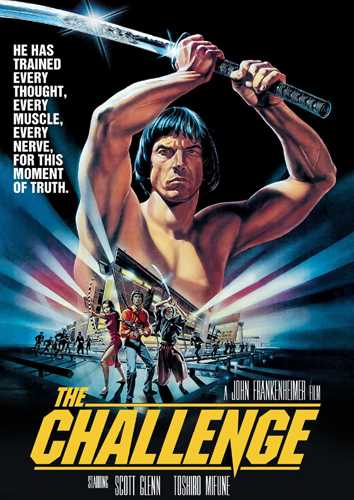
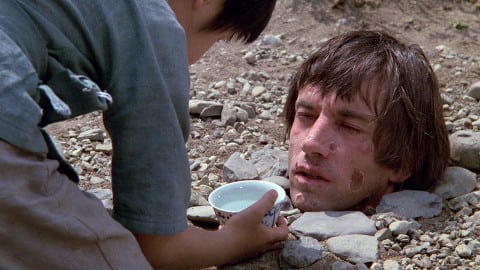
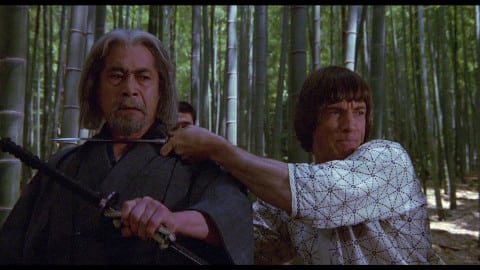




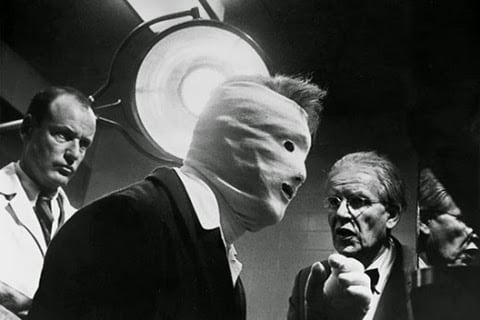
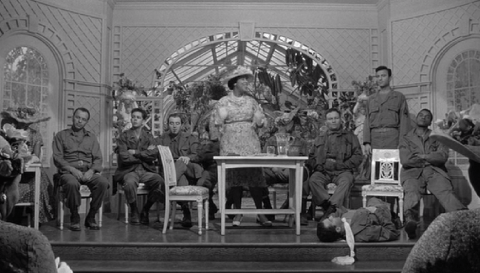
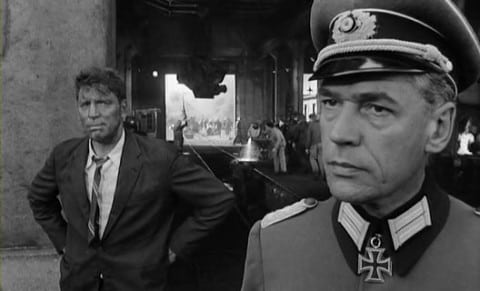
Be the first to comment